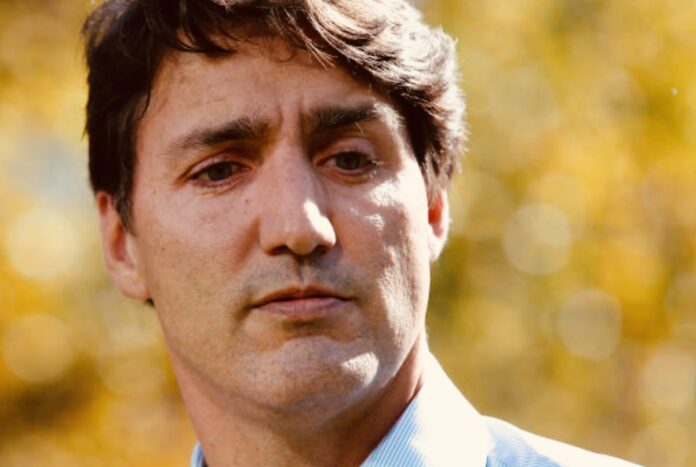After nearly a decade as Canada’s prime minister, Justin Trudeau has announced his resignation, marking the end of an era for the Liberal Party and Canadian politics. Trudeau’s decision comes amidst internal party turmoil, declining public support, and significant economic challenges. With the global political stage shifting—most notably Donald Trump’s imminent inauguration as U.S. president on January 20, 2025—Canada faces a pivotal moment of transition.
The Trudeau Era: A Look Back
Justin Trudeau became prime minister in 2015, sweeping to power with promises of progressive change, environmental leadership, and a renewed focus on diversity and inclusion. His rise symbolized a generational shift, and his policies often stood in sharp contrast to the conservatism seen in other parts of the world.
Key Achievements
1. Climate Leadership:
Trudeau’s administration made combating climate change a central focus, implementing a national carbon pricing plan and promoting renewable energy initiatives. While critics argued that his approach wasn’t aggressive enough, these efforts positioned Canada as a leader in global environmental policy.
2. Social Progressivism:
Trudeau’s government legalized recreational cannabis, expanded LGBTQ+ rights, and worked to address systemic racism, including a landmark inquiry into missing and murdered Indigenous women and girls. His administration also implemented policies to welcome refugees, particularly during the Syrian crisis, earning international praise.
3. Economic Measures:
During his tenure, Canada’s economy saw periods of robust growth, bolstered by investments in infrastructure and technology. His government also introduced measures like the Canada Child Benefit, aimed at reducing poverty and supporting families.
The Challenges That Defined His Leadership
While Trudeau’s early years were marked by optimism, his second and third terms proved far more tumultuous.
Ethics and Scandals
The Trudeau administration faced repeated ethical controversies, from the SNC-Lavalin affair to his vacation with the Aga Khan, which led to criticism about transparency and accountability. These issues eroded trust, even among his base.
Economic and Pandemic Struggles
The COVID-19 pandemic tested Trudeau’s leadership, with mixed reviews on his handling of vaccine rollouts and support programs. Economic fallout from the pandemic, coupled with rising inflation and housing crises, further strained public confidence.
Political Polarization
Trudeau’s progressive policies often clashed with conservative provincial governments and deepened divisions within Canada. Protests—most notably the Freedom Convoy demonstrations in 2022—highlighted growing dissatisfaction with federal policies, particularly among rural and conservative voters.
The Path to Resignation
Several factors culminated in Trudeau’s decision to step down, including:
1. Declining Popularity:
By late 2024, polls showed a sharp decline in support for the Liberal Party, with vote intent dropping to just 16%. Voter fatigue and dissatisfaction with his leadership played significant roles.
2. Internal Party Pressure:
Trudeau faced growing unrest within the Liberal Party. In October 2024, 24 MPs signed a letter urging him to step aside, citing concerns about the party’s ability to win the next election under his leadership.
3. Cabinet Resignations:
The departure of key ministers, including Deputy Prime Minister Chrystia Freeland, signaled deeper fractures within his administration. Freeland’s resignation over fiscal disagreements left a significant leadership vacuum.
4. Economic Struggles and U.S. Relations:
Rising inflation, housing shortages, and looming tariff threats from the United States under the incoming Trump administration amplified economic pressure. Critics argued Trudeau’s policies failed to adequately address these challenges.
Trudeau’s Legacy
While his resignation marks the end of an era, Trudeau’s legacy remains complex. For some, he will be remembered as a leader who championed progressive values and sought to modernize Canada’s role on the global stage. For others, his tenure highlights the challenges of balancing lofty ideals with pragmatic governance.
As Trudeau prepares to step down, Canada faces critical questions about its future. The Liberal Party now embarks on a leadership race to select his successor, who will inherit a fractured party and an increasingly polarized electorate.
Canada’s Next Chapter
Trudeau’s resignation coincides with Donald Trump’s return to the White House, a development that will undoubtedly influence Canada’s economic and political strategies. Navigating this new geopolitical landscape will require strong leadership, as Canada seeks to maintain its identity and priorities amidst global uncertainty.
The Trudeau era may be over, but its impact will shape Canada for years to come. Whether viewed as a visionary or a flawed leader, his decade in office leaves a legacy of ambition, controversy, and transformation.
Disclaimer:
This article is intended as political commentary and opinion. The views expressed herein are those of the author and do not constitute factual reporting or reflect the views of any affiliated organizations. Readers are encouraged to verify information independently and form their own conclusions. This content is not intended to defame, misrepresent, or malign any individuals, groups, or institutions mentioned.






